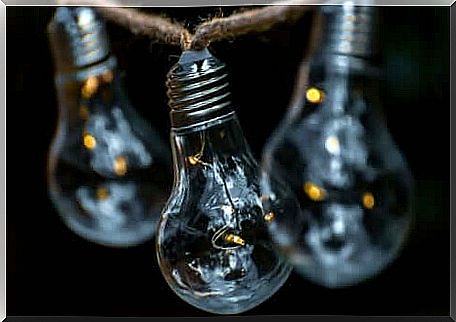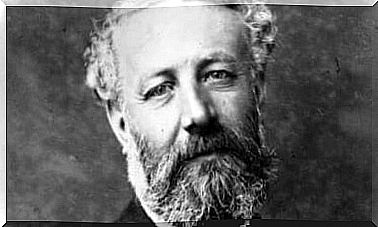What Does Adaptive Intelligence Really Mean?

The fly effect is the name of the generally observed increase in the average IQ result between two specific years. Although the IQ result among academics is generally in a steadily declining trend, from 1938 to 2008 the more optimistic studies can estimate that the average IQ level has risen more than 30 points. But in the last decade, even these well-optimized figures have begun to fall. Perhaps more worrying is that experts believe we are losing something called “adaptive intelligence”.
The idea that our intellectual abilities have diminished in recent years is worrying and raises some concerns. The fact that we rely so much on technology in our daily lives may affect certain skills such as problem solving, creative thinking, and even orienting ourselves without GPS.
Robert J. Sternberg, Yale professor, author of the Triarchic Theory of Intelligence , and one of the most prominent researchers in his field, claims that the problem goes even deeper. He believes that we are losing the ability to develop new strategies to be able to react and adapt to change.

Adaptive intelligence and how to develop it
In recent decades, the idea of what intelligence is and how people display intelligence has changed significantly. Today, the most widely used tool used to measure intelligence is the so-called IQ.
At present, there is also the controversial and heavily criticized theory that there are several types of intelligences. In addition, there are those who believe that we should prioritize emotional intelligence. Which theory is correct? Some argue that all ideas are valid.
In the end, people express intelligence through their creativity, their problem-solving ability, their flexibility and how they understand and respond to other people.
Professor Sternberg explains a very interesting aspect of this discussion in his essay Earth to Humans: Get with it or get out! regarding adaptive intelligence in a time of human catastrophes. He argues that it is time to reformulate this concept and introduce something more useful. He suggests something he calls adaptive intelligence.
Better “educated” but with lower IQ
As we mentioned at the beginning of the article, the Flynn effect reached a plateau in 2008. After that, the average IQ began to fall. Do we get dumber with the years? The answer is probably not that simple. Sternberg believes that we may have been too focused on teaching skills that are not very useful for modern needs.
In other words, today’s problems may require abilities that no one teaches. Perhaps factions, equations, knowing the names of all rivers in Europe and which king conquered France in 1415 are not very useful for solving climate change – if they can be solved now – in modern times. Now, none of the previous exercises are self-serving, but in reality a way to teach discipline. This is something that is missing in the current situation anyway, and yet another problem to add to the range of possible causes for a still declining societal intelligence.
Sternberg points out that we can no longer measure intelligence with a simple test or just by thinking about it in terms of IQ. There are whole generations of incredibly well-educated people who do not have much to offer when it comes to solving the most urgent problems. That is the reality we live in. The only useful perspective right now is that which is part of a concept that, after all, is not entirely new: adaptive intelligence.
The extent of adaptive intelligence
Albert Einstein said it, and Stephen Hawking repeated it: the only valid concept of intelligence is the ability to change. By that, they meant that an intelligent person is a person who can adapt to the changes in their environment in an innovative way, no matter how difficult these changes are. It is about being aware of the challenges we face in order to be able to answer them in an original and successful way.
Adaptive intelligence integrates all processes, knowledge, skills and abilities that help you not only manage change but take advantage of it and move on. This is challenging, no doubt about it.

How to develop adaptive intelligence
To lay the foundation for adaptive intelligence, you need to start with a clean slate, tabula rasa, in many ways. This means a reformulation of many things that you take for granted. It is also about having an open mind that can be self-critical and aware of the needs, challenges and dynamics of the current context.
Here are some strategies you can use to activate your adaptive intelligence.
Stop using the past as a reference point
We all have a past. No matter what your “unique” story is or what experiences you have had, you should understand that the things that have already happened may not always be a useful point of reference. We must make sure to experience what is happening today and right now.
Instead, focus on building the future by taking risks and developing new abilities.
Out with expectations, out with uncertainty
Linear thought patterns and expectations are not very useful anymore. Thoughts such as: “I will do this because I know this will happen and I can solve it this way” do not work. You can not take anything for granted anymore because there is so much uncertainty in the world.
You need to let go of old ways of thinking and understand that things have changed. The only way forward is through adaptation. We should make it clear that adaptation does not mean that you simply accept the spirit of the times. Rather, it is about understanding what you are dealing with in order to change your reality.
Emotions, intelligence and intuition
Robert J. Sternberg invites his readers to reflect on an important fact. Adaptive intelligence must coexist with artificial intelligence. Technology will play a crucial role in our lives, so we need to know how to deal with it.
We need to find ways to adapt to a future where information is constantly changing, and where many things will be automated thanks to artificial intelligence. That being said, humans will always have an advantage over artificial intelligence. After all, our emotions, our intuition, and our human judgment will always be invaluable.
These are our best weapons. Knowing how to combine our intelligence with these skills will always give us an advantage. Thus, it is important to think of ways in which we can develop these skills. It’s time to focus on our adaptability so that we can change together with the ever-changing world; as we have always done.









